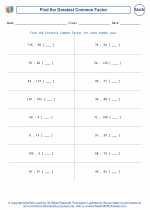Associative Property
The associative property is a fundamental concept in mathematics that deals with the grouping of numbers in a mathematical operation. It states that the way in which numbers are grouped in an addition or multiplication operation does not affect the result.
Addition
For addition, the associative property can be stated as:
(a + b) + c = a + (b + c)
Multiplication
For multiplication, the associative property can be stated as:
(a * b) * c = a * (b * c)
Example:
Let's consider the following addition and multiplication operations:
3 + (4 + 5) = (3 + 4) + 5
2 * (6 * 3) = (2 * 6) * 3
In both cases, the result remains the same regardless of the grouping of the numbers, illustrating the associative property in action.
Study Guide
Key Points:
- The associative property states that the grouping of numbers in addition or multiplication does not affect the result.
- It is applicable to both addition and multiplication operations.
- The property allows us to regroup numbers in a way that is convenient for calculation.
Tips for Remembering:
- Remember the phrase "Association is flexible" to recall that the grouping of numbers can be flexible without changing the result.
- Practice regrouping numbers in various addition and multiplication operations to reinforce the concept.
- Look for real-life examples where the associative property is at play, such as when splitting a bill among a group of people.
Practice Questions:
- Simplify the following expressions using the associative property:
a) (7 + 8) + 9
b) 4 * (5 * 6) - Explain in your own words why the associative property holds true for addition and multiplication.
Review and Summary:
Review the key points of the associative property and make sure to understand how it applies to different mathematical operations. Practice applying the property to various examples to solidify your understanding.
[Associative Property] Related Worksheets and Study Guides:
.◂Math Worksheets and Study Guides Seventh Grade. Exponents, Factors and Fractions
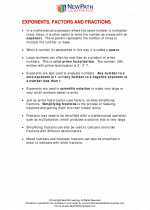
 Worksheet/Answer key
Worksheet/Answer key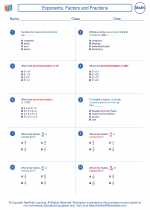
 Worksheet/Answer key
Worksheet/Answer key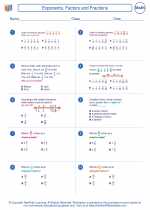
 Worksheet/Answer key
Worksheet/Answer key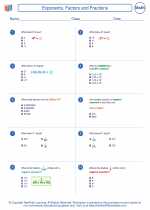
 Worksheet/Answer key
Worksheet/Answer key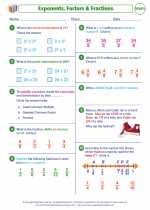
 Worksheet/Answer key
Worksheet/Answer key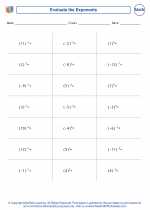
 Worksheet/Answer key
Worksheet/Answer key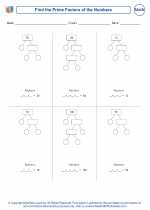
 Worksheet/Answer key
Worksheet/Answer key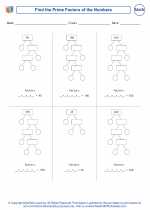
 Worksheet/Answer key
Worksheet/Answer key